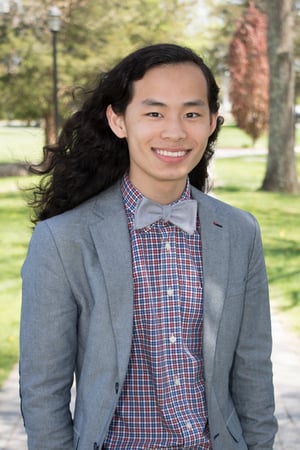For my senior project I am studying Ancient Greek philosophy and making a short film on a philosophical concept. Before I came to this project, my initial goal was to do something that would allow me to learn more about people.  I turned to psychology and counseling, but was faced with too many obstacles of confidentiality hindering me from doing more involved work, so the next best thing became to learn about the origins of how people conceived the world and each other. A lot of America’s societal norms have been shaped by Western Greek Philosophy, so that became the perfect topic.
I turned to psychology and counseling, but was faced with too many obstacles of confidentiality hindering me from doing more involved work, so the next best thing became to learn about the origins of how people conceived the world and each other. A lot of America’s societal norms have been shaped by Western Greek Philosophy, so that became the perfect topic.
Throughout the course, taught by Professor David Roochnik of Boston University, I have studied about four major philosopher/philosopher groups. The groups being, in chronological order, Pre-Socratics, Socrates, Plato, and Aristotle. The course was not a typical one though. As Professor Roochnik explained, the course was more of a dialogue between the philosophers, comparing and contrasting their ways of thinking. In the beginning, my typical routine consisted of me actively listening to the thirty minute lecture once a day, taking notes and such. At moments it would be frustrating because one can get so invested in the ideology of a certain philosopher only to have him questioned and sometimes exposed by another in the next lecture. I found this to be the case in my study and also when I would share some of my thoughts with one of my project advisors, Mr. McEnroe, in our discussions. Typically people differentiate debates to have two sides, but the constant emergence of new thinkers throughout history has proven there are always more views on a topic. I’ve learned that one cannot underestimate the capability of the mind to create a new perspective.
After a fair amount of study, I looked back on what I was learning. A lot of of it was still very confusing to me, so I picked out the big overarching categories that the philosophers were often put into. Absolutists and relativists. I chose to make my short film about these ways of thinking. I took some time to write the script and ran it by one of my project advisors, Ms. Sughrue. After approval and edits, I began the process of creating the visuals and filming them. I ultimately chose to do a overhead monologue over a dialogue between actors for time constraint purposes, but that only meant the visuals had to represent the words even better. Now the process of editing is a whole other new aspect of my senior project that I am learning. I’ve gotten support and advice from Mr. Lawrence, Digital Content Manager at Tabor, who lent me the camera I used for filming. It’s challenging because there is so much more to the editing process than I thought, but the wealth of information online has almost been as easy to lean on as the great supporters I have had here at Tabor for my project.








